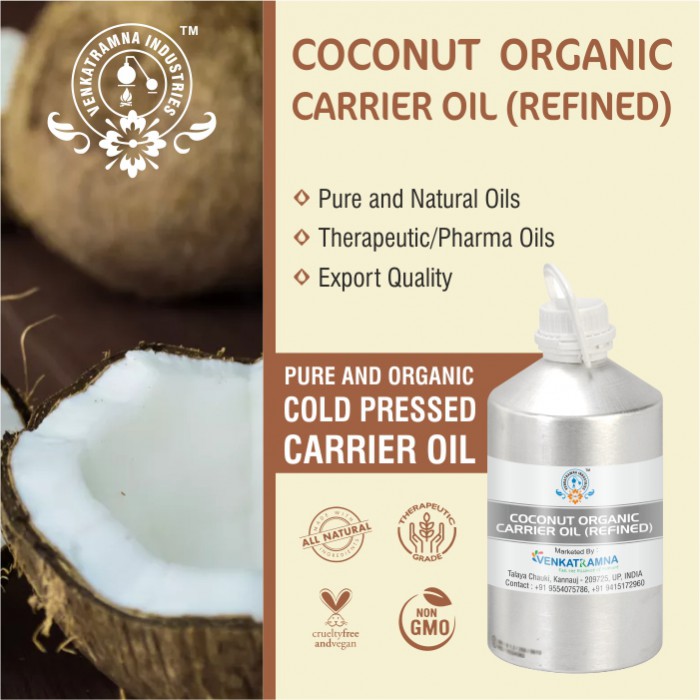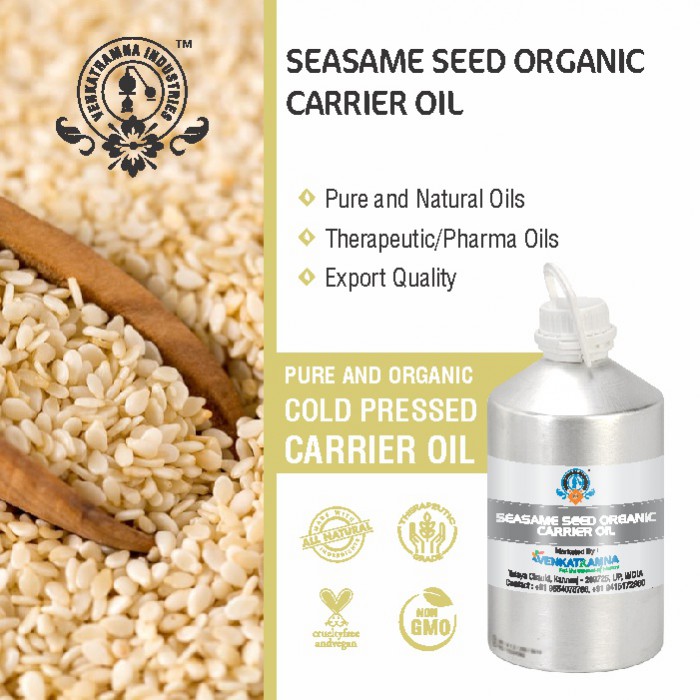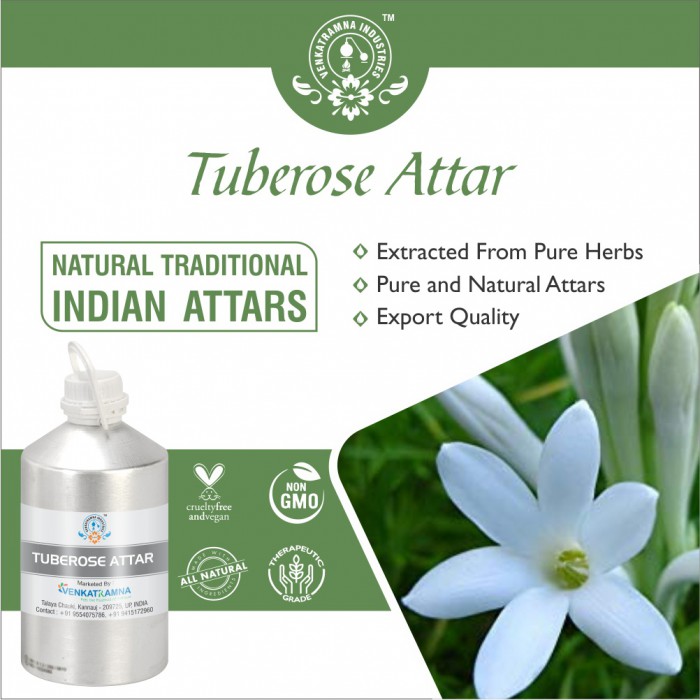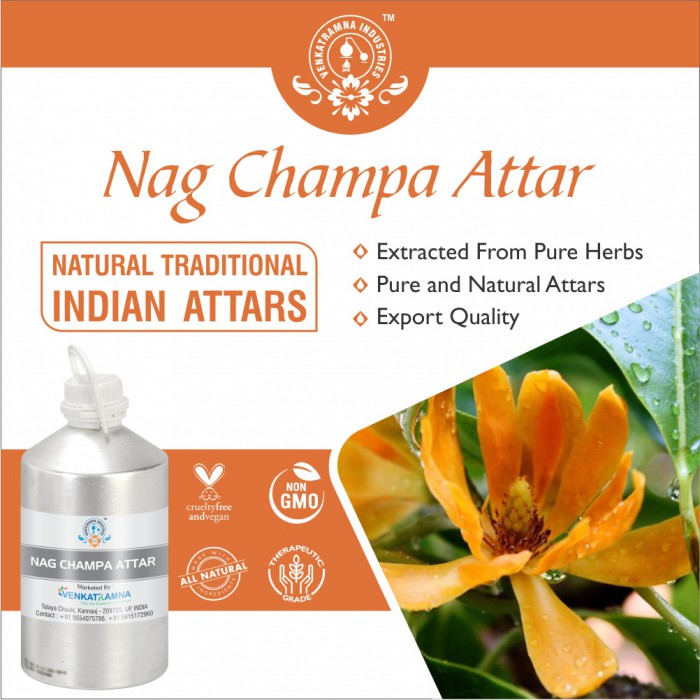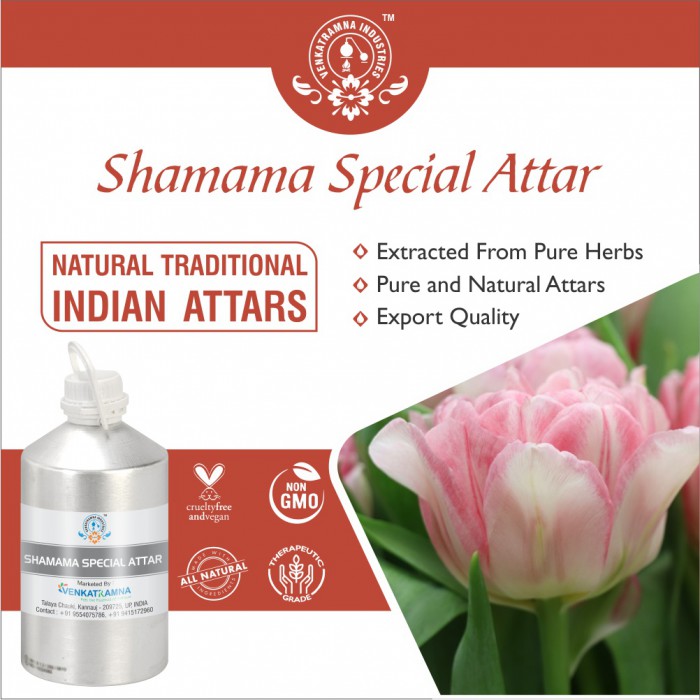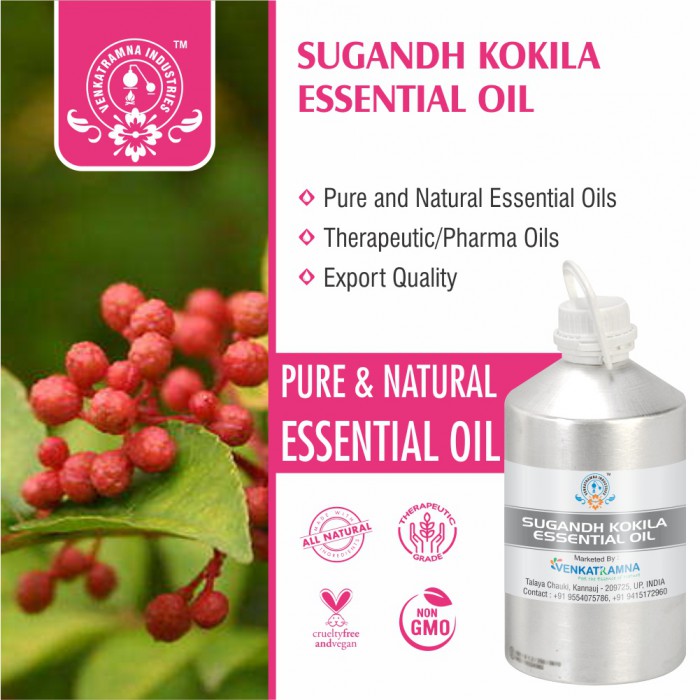Botanical Name: Pandanus odorantissmus Common name: Fragrant screw pine Read More
|
Botanical Name: |
Pandanus
odorantissmus |
|
Common name: |
Fragrant screw pine |
|
Plant family: |
Pandanaceae |
|
Genus: |
Pandanus |
|
Appearance/Color: |
Light yellow to
brown color thin consistency liquid |
|
Odor: |
Similar to that of
rose flower |
|
Blends With: |
Lemon, Cypress,
Geranium, Jasmine, Lavender, Rosemary, Ylang- Ylang. |
|
Origin: |
India |
|
Source: |
Flowers |
|
Method of
Extraction: |
Steam Distillation |
The flower is dear to the Indian
heart is Kewda (Pandanus odoratissimus). It grows on a small tree or
shrub which is both cultivated and grows wild in coastal areas. It can also be
found in some inland districts but the flowers seem to create their most
exquisite floral bouquet in certain coastal localities, the most famous being
the Ganjam district of Odisha. The tree/shrub can reach a height of 18 feet.
Kewra oil is extracted from the
flowers of Kewra plant through the steam distillation method. Due to its
awesome health benefits, it is widely used in the aromatherapy applications.
The botanical name of Kewra plant is Pandanus Odoratissimus.
For essential oil extraction all the collected flower samples were carefully transported to the distillation units. The green spathe of inflorescence was removed completely manually to improve the essential oil yield. The oil extraction was carried out by Clevenger’s apparatus from all the flowers. The flowers are chopped in to small pieces and 1000g of flowers are placed in the flask to which 3000ml of distilled water is added.
DISCLAIMER
The complete range of conditions
or methods of use are beyond our control therefore we do not assume any
responsibility and expressly disclaim any liability for any use of this
product. Information contained herein is believed to be true and accurate however,
all statements or suggestions are made without warranty, expressed or implied,
regarding accuracy of the information, the hazards connected with the use of
the material or the results to be obtained from the use thereof. Compliance
with all applicable federal, state, and local laws and local regulations
remains the responsibility of the user.
The FDA has not evaluated the
statements on this website. No claims are made by Venkatramna Industries as to
the medicinal value of any products from vriaroma.com or by us. The information
presented here is for educating our customers about the traditional uses of
essential oils and is not intended to diagnose, treat, cure, or prevent any
disease. You are responsible for understanding the safe application of these products.
If you have any questions, please call or email us for further information.
As per NAHA guidelines, New Directions Aromatics (NDA) does not recommend the ingestion of essential oils. It is imperative to consult a medical practitioner before using Essential Oils for therapeutic purposes. Pregnant and nursing women and those taking prescription drugs are especially advised not to use this product without the medical advice of a physician. The oil should always be stored in an area that is inaccessible to children, especially those under the age of 7.
Kewra oil is widely used in several sweet dishes as a
flavoring agent. Along with this, it is also used in wide range of herbal
medicines.
Kewra
oil in Pharma
It has excellent fixative properties as well. Due to
its refreshing aroma, it is an important ingredient in the perfume industry as
well as highly used in aromatherapy applications
Essence
of Kewra oil
Kewra oil also has various therapeutic uses through
which you can stabilize your mind & body function.
COMMON USAGE
·
Antioxidant
·
Antiseptic
·
Antifungal
·
anti-inflammatory
·
Immune enhancer
Ingredients:
|
S.No |
Key Constituents |
Strength (%) |
|
1 |
Phenylethyl methyl ether |
65.6–75.4 |
|
2 |
Terpinen-4-ol |
0–21.0 |
|
3 |
2-Phenylethyl acetate |
2.8–3.5 |
|
4 |
p-Cymene |
0.3–3.1 |
|
5 |
a-Terpineol |
0–2.9 |
|
6 |
g-Terpinene tr |
2.4 |
|
7 |
b-Pinene |
0.1–1.2 |
TOXICOLOGICAL
INFORMATION
Safety summary
·
Hazards: None known.
·
Cautions: None known.
Organ-specific effects
·
Adverse skin reactions: No information
found. Phenylethyl methyl ether was mildly irritating when applied undiluted to
rabbits for 24 hours under occlusion; the material was neither irritating nor
sensitizing when tested at 8% on 25 volunteers.
Systemic effects
·
Acute toxicity: No information
found. Phenylethyl methyl ether acute oral LD50 in rats 4.1 g/kg; acute dermal
LD50 in rabbits 3.97 g/kg.
·
Carcinogenic/anticarcinogenic potential: No
information was! found for kewda oil, but it contains no known carcinogens
ECOLOGICAL INFORMATION
·
Aquatic Toxicity: No data available
·
Bioaccumulation: No data available
·
Mobility in soil: No data available
·
Persistence and degradability: No data available
·
PBT and vPvB assessment: No data available


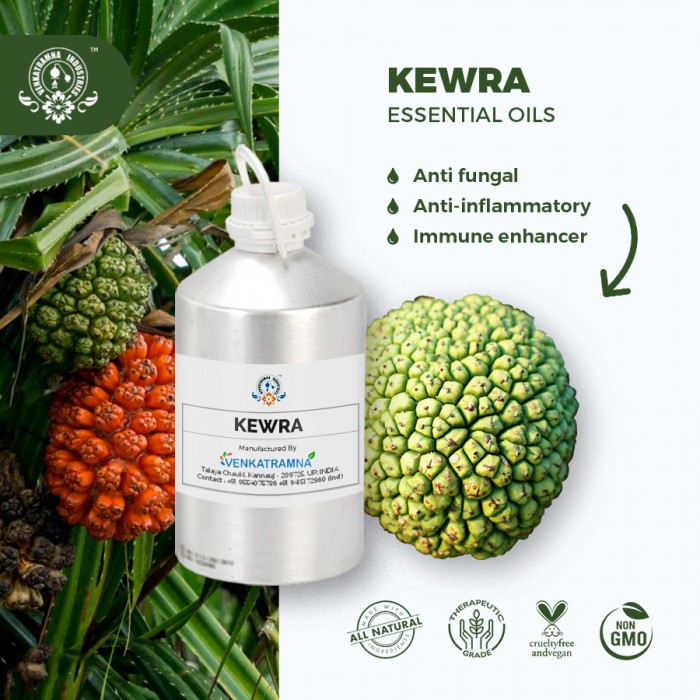
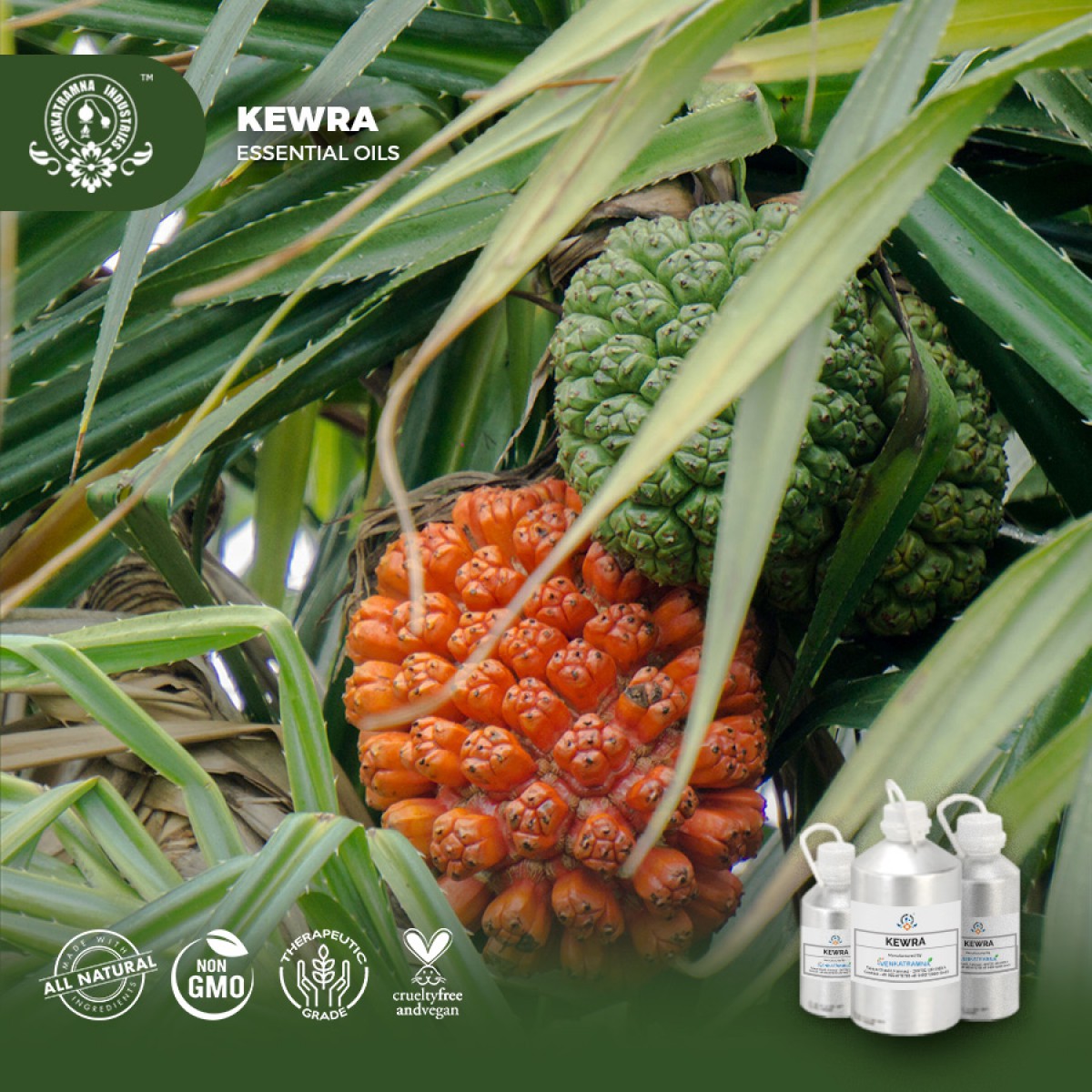
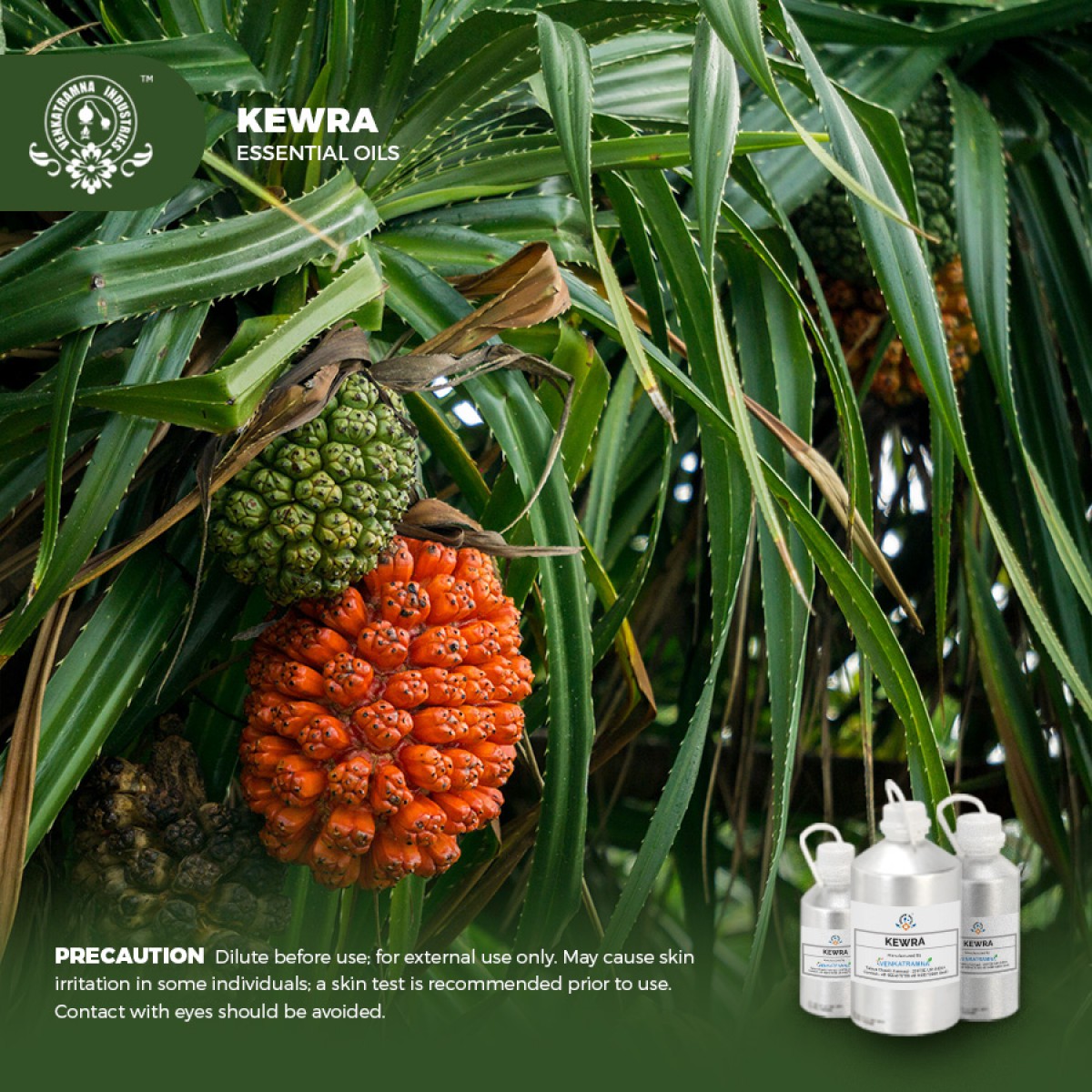
 MSDS-Kewra.pdf
MSDS-Kewra.pdf